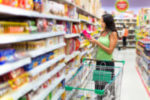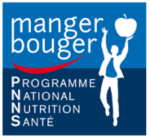
The right to use Nutri-Score is optional and free. It was implemented for the first time in France in 2017, based on the work of the team of Pr. Serge Hercberg as well as the expertise of the National Health Security Agency (ANSES) and the High Council of Public Health (HCSP). Since its launch in France, several countries have decided to recommend its use: Belgium, Switzerland, Germany, Spain, the Netherlands and Luxembourg. The logo is awarded on the basis of a score taking into account, for 100 g or 100 mL of product, the content: of nutrients and foods to promote (fibers, proteins, fruits, vegetables, legumes, nuts, rapeseed oil , nuts and olives) and nutrients to limit (energy, saturated fatty acids, sugars, salt). The Nutri-Score of drinks has been modified.

USR Constanța senator Remus Negoi gave a speech in the Senate plenary session regarding the legislative initiative of USR deputy Adrian Wiener, concerning voluntary nutrition labeling “Nutri-Score and the importance of a healthy diet.

On Tuesday, May 31 the NatExpo team organized a webinar-debate on nutrition labeling and environmental labelling schemes. The five speakers were: Florence Roublot (Natexpo), Emmanuel Fournet (NielsenIQ) as moderator, Sabine Bonnot (Institut de l’agriculture et de l’alimentation biologiques – ITAB, Institute of Organic Agriculture and Food), Sybile Chapron (Nature et Aliments), and Vincent Colomb (Agence de la transition écologique – ADEME, Agency of Ecological Transition).

On Tuesday March 22, a webinar was hosted by M. B. Srour from INRAE. Dr. M. Thouvier (Research Director at INSERM) intervened to provide an update on the Nutri-score, its understanding and its link with health.

Santé Publique France announced in its September newsletter, the objectives and development axes of PNNS 4 for the end of 2021 and the beginning of 2022.

The document advises the European Commission on two pillars of the Farm to Fork strategy.

Over the last months, winds of criticism have blown against the system, that yet meets increasing approval among consumers; modifications to the algorithm are not excluded. Orchidali summarizes and comments the issues.

Les résultats de l’enquête du CRÉDOC Tendances de consommation montrent que si l’étiquetage énergétique est largement connu et utilisé, le Nutri-Score, plus

In this study, an online experiment with Swiss consumers (N = 1313) was conducted to compare the effects of different formats of

Suite aux nouvelles recommandations publiées par Santé publique France sur l’alimentation, l’activité physique et la sédentarité en janvier dernier, le 4e Programme